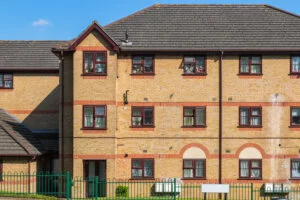Welfare Benefits
Welfare Benefit Appeals
Osbornes Law is one of only a few law firms to have a contract with the Legal Aid Agency in the area of Welfare Benefits law. However legal aid is only available for cases before the Upper Tribunal. We can advise whether your case is suitable for such an appeal.
Welfare Benefit Appeals
Legal aid is only in scope for cases before the Upper Tribunal. This means that legal aid is not available for general advice on welfare benefits issues, or for appeals of benefit decisions before the First Tier Tribunal.
If you have received a negative decision in your first appeal, however, and wish to explore the possibility of an appeal to the Upper Tribunal we may be able to assist you with this under our Welfare Benefits contract.
Our London solicitors also continue to provide assistance in appeals before the First Tier Tribunal and general advice in respect of welfare benefits matters. If possible we will try to agree a fixed fee for work done on your case. In rare cases, we may be able to apply for exceptional funding from the Legal Aid Agency to cover work that is out of scope for legal aid (such as appeals before the First Tier Tribunal), but we cannot guarantee that we will be able to do this in all cases.
There are also various situations in which there is no right of appeal in respect of a decision in relation to welfare benefits, or regarding a policy or rule implemented by a local authority or the Department of Work and Pensions.
In these cases, the only way in which a decision can be challenged is by way of a claim for Judicial Review.
We have set out more detail on this in the FAQs section below. However, as Osbornes Law has a public law contract, as well as a Welfare Benefits contract, we are in a strong position to be able to assist clients by bringing Judicial Review claims in relation to welfare benefits issues in appropriate cases.
How to appeal a decision
In most cases, if you disagree with a decision by a benefits agency, such as a local authority or the Department of Work and Pensions (“DWP”), you have one month in which to challenge the decision. The first stage is to ask the decision-maker to reconsider their decision (in cases involving the DWP this is called the “mandatory reconsideration” stage, and in Housing Benefit cases it is called a “revision”).
If you remain dissatisfied after this stage you will need to make an appeal. In most cases, the time limit for submitting an appeal is one month from the date of the mandatory reconsideration or revised decision.
You should keep a clear record of all correspondence and interaction with the body making decisions on your benefits. Ideally, this should all be in writing. In relation to Universal Credit, most interaction with the DWP will be through the online journal, which will provide a written record of what you and the DWP have said.
High Court decides on uplift to legacy benefits
We can confirm that on Friday 25th February 2022 we submitted the application for permission to appeal to the High Court over the recent ruling on the uplift to legacy benefits. Further information will be posted on our website when received.
Will is the best housing solicitor there is and he has the best housing law mind I have come across. He is really exceptional and incredibly helpful for both clients and people in the sector.
They are extremely good and diligent in their work - they are super amazing.
The lawyers at Osbornes Law work with passion, putting in all their best.
Osbornes has some very good quality lawyers doing very interesting work.
Osbornes have a strong team with some truly excellent individuals.
William Ford leads the team as an excellent example of a highly committed, tenacious, and effective public lawyer.
They are tenacious, approachable, and extremely effective in representing the interests of their clients including in highly complex cases.
Osbornes Law are a truly excellent team. They cover a range of immigration, housing, and social care matters with a core commitment to representing vulnerable clients.
Osbornes has a particular strength in handling social housing challenges with a focus on homelessness and assisting children with disabilities.
William Ford has a forensic knowledge of housing law and is extremely intelligent, very thorough, and excellent with clients
William Ford is one of the most highly-regarded solicitors in his area.
Excellent communication at all stages of a claim and an emphasis on the needs of the client.
A thoroughly professional firm who have specialist knowledge of their areas of law.
Outstanding lawyers providing outstanding quality advice. They are one of the leaders in the field.
Alex McMahon is an extremely safe pair of hands for any housing issues.
Will is a knowledgeable and experienced litigator. He is adept at achieving great results for his clients.
William Ford has long been a leading individual in the housing law world.
Osbornes' social housing law team is very good and very well regarded within the field, with great solicitors across the full range of seniority.
William has taken some brilliant cases to the highest court. He is diligent, intelligent and very dedicated to his clients.
The housing team at Osbornes is the best in England.
Alex McMahon is another notable team member who practices across housing law, public law, and community care.
Ford is well-equipped to bring judicial review claims, and he has a strong focus on supporting migrants.
Practice head William Ford is praised as ‘the best housing and social security lawyer in the sector.
The social housing team at Osbornes boasts extensive experience in representing clients with claims against local authorities and housing associations in mandates surrounding disrepair, possession, eviction warrants and illegal evictions, homelessness, and anti-social behaviour.
Welfare Benefits FAQs
When can I bring a claim for Judicial Review in relation to welfare benefit cases?
The following are examples of cases where a claim for Judicial Review is appropriate:
- Public law challenges. This is where a challenge is brought to legislation or a policy that is considered to be unlawful. Recent examples of this include challenges to the “bedroom tax” and the “benefit cap”.
- Decisions where there is no right of appeal to the First Tier Tribunal. These include:
- A failure or refusal to carry out a mandatory reconsideration of a decision;
- A decision to suspend (as opposed to terminate) a payment of benefit;
- Whether or not to waive recovery of an overpayment;
- A refusal to carry out an “any time” revision. In certain circumstances a benefit authority can consider revising a decision even where the normal time limit for an appeal has passed (13 months). If the benefit authority refuses to carry out an anytime revision then this can only be challenged by way of Judicial Review.
- Refusal of by the Upper Tribunal to grant permission to appeal from the First Tier Tribunal
- Interim decisions by a First Tier Tribunal judge. A Judicial Review to the Upper Tribunal can be brought against interim decisions of the First Tier Tribunal Judge regarding the case management of the appeal under the Tribunal’s procedure rules. There is no specific right of appeal to do this, so Judicial Review before the Upper Tribunal is the only option to effectively challenge an interim decision.
Are there any circumstances in which Judicial Review can be used if there is a right of appeal to the First Tier Tribunal?
Judicial Review is a remedy of last resort, which means that in most cases where there is an alternative route to challenge a decision, such as an appeal to the First Tier Tribunal, a claimant will be expected to pursue that route. However, in some situations it may be possible to bring a Judicial Review claim even where there is technically a right of appeal to a Tribunal.
This can happen where the alternative remedy is not effective, such as where the consequences of waiting for the appeal to be heard before the First Tribunal would be so serious that waiting for the hearing would deny the claimant any meaningful benefit of success at that hearing. An example of this could be where Housing Benefit has been refused and a client is facing a possession claim under mandatory rent arrears grounds., but by the time the Housing Benefit appeal is concluded it will be too late because a Court would have made a possession order. In this situation a claim for Judicial Review may be appropriate. As a result of welfare reforms and problems with the administration of benefits there can be situations in which individuals are left without any benefits and are at risk of destitution. In such cases sometimes Judicial Review will be the only effective remedy.
Can I challenge a decision of the First Tier Tribunal because I am unhappy with the result?
An appeal to the Upper Tribunal can only proceed on a point of law, not just because you are unhappy with the decision of the First Tier Tribunal. It will be necessary to demonstrate that there has been some failing by the First Tier Tribunal. Points of law can include a failure to take into account relevant evidence, reliance upon irrelevant considerations, a misunderstanding of legislation, and a failure to apply relevant binding case law.
Are there other organisations that can help me?
Below are the details of other organisations who may be able to provide assistance:
- Child Poverty Action Group https://cpag.org.uk/
- Shelter https://www.shelter.org.uk/
- Disability Rights UK https://www.disabilityrightsuk.org/
- Citizens Advice Bureau https://www.camdencabservice.org.uk/
- Age UK https://www.ageuk.org.uk/
- Turn2 https://www.turn2us.org.uk/
Housing and Community Care InsightsVIEW ALL
- 30.5.2025
Asylum-Seeking Child Wins Age Dispute Court Case Against...
Vulnerable unaccompanied asylum-seeking child vindicated in relation to his age following four day hearing in damming judgment against Local Authority...
Read more - 30.4.2025
Torbay Council Fined £8,400 for Failing Child’s Needs
Torbay Council ordered to pay £8,400 for year-long neglect of child’s needs The Local Government & Social Care Ombudsman has...
Read more - 24.4.2025
Age Re-Assessment Ordered by High Court
‘Illogical’ and ‘unlawful’: High Court rules in favour of unaccompanied asylum-seeker against Local Authority On 16 April 2025, His Honour Judge Dight...
Read more - 2.4.2025
Significant Damages Secured in Disrepair Case
Significant Damages for Disrepair secured following breach of Court Order Our client approached Osbornes Law having previously brought a disrepair...
Read more - 6.3.2025
Housing Cases: When Vulnerability Affects Capacity
When does vulnerability become an issue of capacity in housing cases? Things to consider Many clients seeking housing advice from...
Read more - 30.1.2025
Osbornes Wins Judicial Review on Legal Aid Fees
Osbornes successful in judicial review of Lord Chancellor over legal aid fees for Welfare Benefits On 28 January 2025 the High Court...
Read more - 13.1.2025
Osbornes Law Secures Mental Health Support for Asylum...
Home office backs down over decision to deny mental health support to suicidal torture victim seeking asylum The Home Office...
Read more - 7.11.2024
New DWP Scheme: Refunds for Recoverable Hardship Payments
Sanctioned Universal Credit claimants may be entitled to refunds of Hardship Payments following announcement of new DWP scheme The Department...
Read more - 7.10.2024
Disabled Woman Wins £34,000 Benefits Case
The Background to the Case In 2019 Ramona Cerbu was crossing the road when she was hit by a car and...
Read more - 2.9.2024
Transferring a Council House Tenancy to a Family...
Tenancy Succession Rules The loss of a loved one is always a difficult time. It is important that time is...
Read more - 30.7.2024
Single Mother Wins in High Court Homelessness Challenge
Claim for judicial review against Redbridge Council This case involved a claim in the High Court for judicial review against...
Read more - 15.7.2024
How To Deal With Rent Arrears
What can I do if I am struggling to pay off rent arrears? There are many reasons why one might...
Read more - 16.4.2024
When can you challenge public body decisions about...
An introduction to public law Public law governs the relationship between public bodies, such as central government or local government,...
Read more - 16.4.2024
Short-Form Assessments of Unaccompanied Asylum-Seeking Children
Age is just a number? Shining a light on Local Authorities’ Short-Form Assessments of Unaccompanied Asylum-Seeking Children A recent report...
Read more - 5.4.2024
DWP Exposed for £32,000 Underpayment of Disability Benefits
Osbornes Law has assisted a vulnerable client to recover underpaid disability benefits totalling over £32,000. Our client, a disabled young man,...
Read more - 23.1.2024
Case Reiterates Local Authorities should follow Allocation Scheme
R (on the application of Kukhtyak) -v- London Borough of Hounslow [2023] EWHC 2914 (Admin) This sad case concerned an elderly couple...
Read more - 7.12.2023
Supreme Court sets High Threshold for Local Authorities...
Judgment was handed down on 28 November 2023 by the Supreme Court in an important case regarding the main housing duty. The...
Read more - 28.9.2023
Gatekept homeless teenager accommodated by local housing authority
Miss X, a 17 year old whose details are anonymised to protect her privacy, left her family home in March 2022 following...
Read more - 28.9.2023
Homelessness case successfully settled for elderly disabled lady
Ms X, whose details are anonymised to protect her privacy, had been living in a privately rented one-bedroom flat for...
Read more - 28.9.2023
Disrepair Claim for Single Father
Background to the Claim Osbornes Law represented a private tenant, a single father living with his young son in their...
Read more - 28.9.2023
Client successfully rehoused following refusal by local authority
Background to the case Osbornes Law represented a client who had been found intentionally homeless by his local authority. He...
Read more - 28.9.2023
Client rehoused and £16,000 arrears cleared
Osbornes Law were instructed to assist a client to suspend a warrant for possession. The client had fallen into arrears...
Read more - 26.9.2023
Victory for Homeless Victim
Mr X, whose details are anonymised to protect his privacy, fled his home country due to severe persecution from the...
Read more - 13.9.2023
Successful homelessness judicial review case against Redbridge Council
This matter involved a claim in the High Court for judicial review against Redbridge Council for failure to comply with...
Read more
Osbornes Law has experience in dealing with issues involving all types of welfare benefits, including
- Universal Credit
- Housing Benefit
- Personal Independent Payments
- Disability Living Allowance
- Employment and Support Allowance
- Income Support
- Jobseekers Allowance
- Child Benefit
- Tax Credits
- Pension Credit.




























